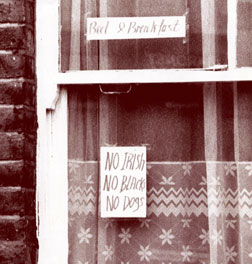 To be British is to be confused about who you are, or at least conflicted. But maybe that’s just me. I grew up listening to my Irish father bemoan the British, who were, as far as he was concerned, a bunch of troglodytes. I suspect he was only partially joking. As an immigrant, he grew up in an era of overt racism and discrimination. Job adverts declared “no Irish need apply”, and signs in boarding houses read “No Irish, No Blacks, No Dogs.”
To be British is to be confused about who you are, or at least conflicted. But maybe that’s just me. I grew up listening to my Irish father bemoan the British, who were, as far as he was concerned, a bunch of troglodytes. I suspect he was only partially joking. As an immigrant, he grew up in an era of overt racism and discrimination. Job adverts declared “no Irish need apply”, and signs in boarding houses read “No Irish, No Blacks, No Dogs.”
Things have improved since the 50s; a bit. But the emotional fallout of the EU referendum has kicked up a lot of dust and opened old wounds. The ugly side of nationalism, the flag waving, get-off-my-island mentality, has triggered shame and soul searching in at least half the population. What will become of Britain when it leaves the EU? Where will we belong? What does it mean to be British anyway?
Being British
When I was pootling about online gathering my thoughts for this post, I came across this insane circular statement: “Being British means being proud to be British.” What does that even mean?!
On the most obvious level, being British means you were born in Britain, or perhaps one of your parents or grandparents were born here. So by default, I’m British through an accident of birth.
But I’m also Irish. Bureaucratically speaking, having an Irish father makes me an Irish citizen too. So I could get an Irish passport and maintain access to borderless travel in Europe, if I wanted to. I would just have to fill out a form (and hand over some cash). Incidentally, there was a spike in searches on getting Irish citizenship following the Brexit vote, so I’m not alone in my traitorous thoughts.
Am I proud to be British? I’m not sure. Being British and/or Irish isn’t something I’ve achieved. I didn’t do anything to be British and Irish except be born, and I didn’t have much say in that. This is why patriotism has never made sense to me. How can I be proud of something so arbitrary?
Then there’s the whole argument over whether British means the same as English. Given the choice between ticking the box marked ‘British’ or the box marked ‘English’, I’ll always go for ‘British.’ There seems to be a difference in how the British and English identities are perceived and how they feel on the inside. To me, the English identity feels smaller and more insular and confined to this damp little island. Whereas British feels more inclusive, connected to something bigger and multicultural.
A survey on this question agreed there was a difference between the British and English that seems to be connected to colour. It showed that non-white Britons felt more British than English, and that white Britons were more likely to identify as English. So I’m way out of step on this; maybe because of my experience of second-hand racism via my dad. I have more in common with people of colour, many of whom struggle to see themselves as English, even if they were born here.
The idea of ‘Britishness’ was originally connected to being a good Protestant when the Kingdom of Great Britain was formed in 1707. The Act of Union married England to Scotland, and then in 1801 Ireland joined the fun and we became the United Kingdom of Great Britain and Ireland. Then came the bitter guerrilla Anglo-Irish war between the IRA and the British. Following the massacres of Bloody Sunday, both sides backed off and Ireland seceded from the UK to become the Irish Free State in 1922. But Northern Ireland opted to stay in the union with the UK. The Irish Free State was renamed simply Ireland (Eire) in 1937, and joined the EU in 1973.
So technically, being British includes the Scottish, Welsh and Northern Irish too, but I doubt there are many Scots who would call themselves Brits. Generally speaking, when asked to define the characteristics of a British person, most people would probably describe someone English.
Maybe it’s a hangover from the old colonial days of imperialism and Empire. The narrative past of the English is blood drenched and nothing to be proud of. Xenophobia is never far from the surface and many of our institutions are systemically racist (the police, for example). The Empire and its exploits (and its flag) still casts a long shadow…
As Father Dominic Moran says in Hunger (2008): “The Brits have been fucking everything up for centuries.” If that clip is too Irish for you, here’s Renton in Trainspotting and his spectacular rant on being colonised by wankers and effete assholes.
Yes, the English are a bunch of bastards. It’s hard to feel proud of being British when there’s so much poisonous baggage to carry.
“Fifty years on from now, Britain will still be the country of long shadows on cricket grounds, warm beer, invincible green suburbs, dog lovers and pools fillers and, as George Orwell said, ‘Old maids bicycling to holy communion through the morning mist’ and, if we get our way, Shakespeare will still be read even in school.” – John Major
The Britain John Major described in 1993 never existed. You can’t define a nation – it’s just an idea, and one that means different things to different people at different times. Contrary to popular belief, the British don’t all wear bowler hats and carry umbrellas and live in castles and drink warm beer and worship the Queen. It’s not like Downtown Abbey (Sorry). Here’s a list of British stuff – off the top of my head:
- Grey skies and drizzle (just looked out of the window – it’s summer)
- Fish and chips
- Stodgy puddings
- Bulldogs
- Red phone boxes (quite rare these days)
- Red buses (but that’s just in London)
- Skinheads wrapped in the flag (they’re coming back 😦 )
- Bobbies on the beat (good luck finding one)
- Football hooligans (although Russia seems to be joining in now)
- Tea!
- James Bond
- Strawberries and cream at Wimbledon
- The NHS
- The BBC and World Service
- The fricking Queen
- Swearing
- British humour – self-deprecating pessimism, sarcasm, piss-taking, anti-authoritarian, absurdist, failure
- Benedict Cumberbatch!
- Tea!
- British Music (I don’t like the Beatles – there, I said it.)
- Doctor Who
- Queuing
- Stiff upper lip – Keep Calm and Carry On (I will punch you in the face if you say that to me – I’m Irish, deal with it)
- Being terribly polite, even under duress (I say, would you mind awfully not punching me in the face…)
- Tea and cake!
- Massive understatement
- Emotional repression
- Passive aggression
- Complaining
- Being so drunk you can’t stand or see or remember where you live or who you are
I could probably go on and on, but I’d need more tea…
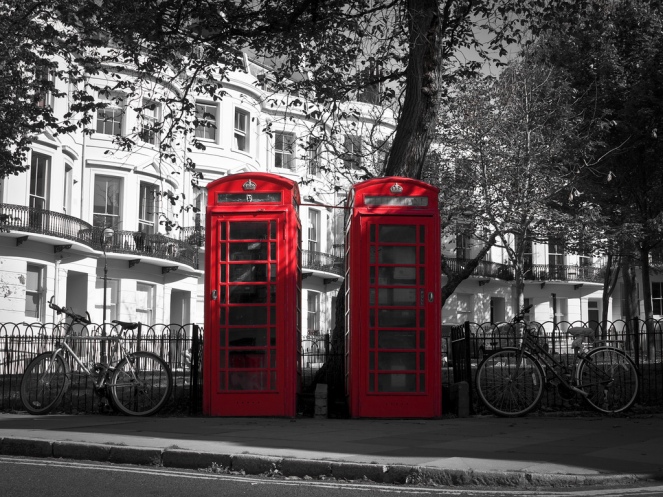
Britishness is a great melting pot of multiculturalism. We’ve nicked bits of our culture from all over the world – the bits we invaded. As a result, many of the things we think of as British, actually come from other places. Tea being the most obvious example. (I should take it off my list.) But the British have invented a lot of stuff too – we’re not totally useless!
Culture is hard to define now because of the globalised marketplace. But how I feel underneath all the superficial cultural stuff is what matters. The common humanity that I share with everybody, wherever they live – that’s who I really am (leaving aside spiritual questions).
You’ll have noticed something missing from my list: British values. Politicians are always banging on about the values we share in common. According to Ofsted, British values are “democracy, the rule of law, individual liberty, mutual respect and tolerance for those of different faiths and beliefs and for those without faith.”
It’s hard to argue with any of that. But are they British values? Democracy existed long before the Greeks ‘invented’ it and there’s evidence it may arise spontaneously in tribal groups. So you can’t claim democracy is British, although the UK Parliament is one of the oldest continuous representative assemblies in the world (apparently).
The Greeks got in early again with the Rule of Law but many other cultures had legal systems too. The UK has the Magna Carta dating back to 1215 but I don’t think we can argue that the concept of the rule of law is fundamentally British.
Finally, the ideas of individual liberty, respect and tolerance aren’t confined to the British either. There are various laws that protect people’s rights, but ask a black man who has just been stopped and searched by the police (again) whether he thinks the police share his values.
Equality is a wonderful ideal, but the class system in Britain is still entrenched. Social mobility has all but stopped. British values may not really be British, but our values say more about how we would like to be – what we aspire to – than who we actually are.
So who are the British?
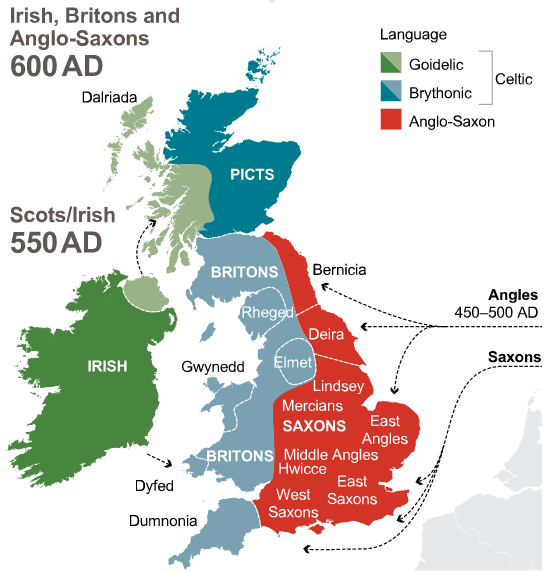
A Genetic History of a Small Island
Britain has always been a mishmash of lots of different cultures. The island has been invaded so many times going back centuries, that our identity is intimately connected with our neighbours. The British are a bunch of mongrels – genetically speaking – although not as much as you would expect.
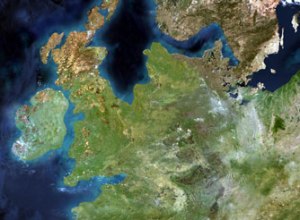
The earliest fully human cultures found on the British Isles date back to the end of the Ice Age, around 9,600 BCE. The land was occupied before that, on and off, by hunter gatherers and early hominids, depending on the climate. During the Ice Age, Britain was joined to the continent by a land bridge, a large plain called Doggerland. As the ice melted and the sea level rose, the British Isles were slowly cut off. Ireland went first, cut off from Britain by around 8,000 BCE, and then Britain was finally marooned by around 6,000 BCE.
The original native Britons (if we can even use that term) were hunter gatherers, nomadic tribes who followed the reindeer herds and wild horses into Britain from Europe as the climate warmed up. Genetic studies have found that 80% of the DNA of modern Britons comes from these few thousand individuals and, surprisingly, this basic gene pool hasn’t been affected that much by subsequent invasions.
Here’s how the migrations break down (with handy dates):
9600 BCE: end of the Ice Age and arrival of hunter gatherers by land from Germany and Belgium, and by boat from France and Spain
2500 BCE: first wave of ‘Celts’ from Iberia – Goidelic-speaking modern Scots and Irish descend from these guys
500 BCE: possible second wave of ‘Celts’ – Brythonic-speaking modern Welsh and Cornish descend from these guys (okay, and gals)
55 BCE: Caesar arrives with the Romans
410 CE: the Romans bugger off again
450 CE: in come the Anglo Saxons from Denmark and north-west Germany
865 CE: don’t look now, it’s the Scandinavian Vikings
1066 CE: where it all begins – the Norman invasion. William the Conqueror arrives from France and takes over (the British never get over it)
There were more invasions after that – Anglo Saxons in the 4th century, and Scandinavian Vikings in the 8th century.
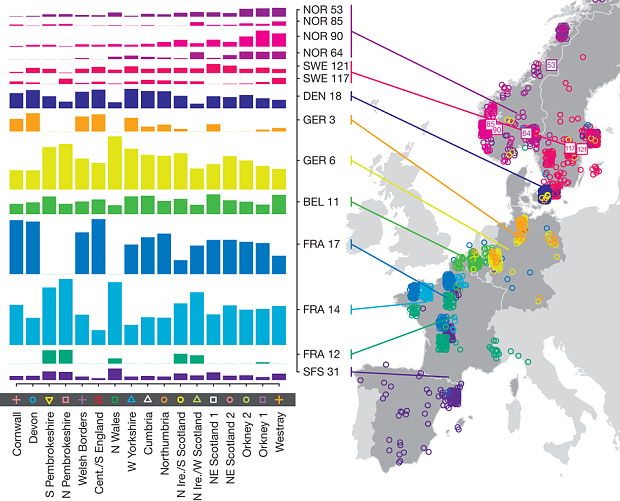
As you would expect, the genetic picture is fairly mixed, although there’s a lot of clustering in tribal groups. The largest percentage of the earliest post-Ice Age migrants is found in Welsh DNA. While Anglo Saxon DNA is mostly found in England and makes up about 20–40% of our modern genetic makeup. The clearest evidence of Viking settlement is found in Orkney.
The big surprise is that there’s no single Celtic group. There may be too much similarity between the Celts who arrived before the Romans and the native Britons who were already resident because they all came from the same places, more or less. There’s certainly no evidence for a Celtic invasion, at least not in genetic terms.
There’s also hardly any evidence of the Roman conquest, the Danish Vikings or the Normans. They all had a massive influence on the culture, but not on our genes. This shows there was a ruling elite, but not much intermingling. The Anglo Saxons are the only invaders who left a serious mark on our genetics as well as our culture.
So the first ‘Britons’ arrived from ‘Europe’ when it was all one landmass. Britons are all migrants, if you look back far enough. Of course, if you want to be totally pedantic about it, we’re all Africans if you go back far enough. (If you want to be completely insane about it, you could say we’re all amoebas, going way back to the primordial swamp. Life was so much simpler then. 😉 )
Cultural identity shifts over time. I hope we can continue to aspire to be more inclusive and welcoming. We’re all people and it doesn’t matter where we’re from.
Images: Flag; Phone Boxes; Maps


I’m English, not British. Britain means very little to me, it’s basically an administrative concept. My wife is Canadian so my kids have the luxury of being Anglo-Canadian. Dual identity – and especially dual-citizenship – is, I think, a real benefit. Not just in terms of cultural input but also in terms of opportunity later in life.
Unlike you I tend to think of Britain if someone talks about ‘blood-stained history’. Sure, England was/is an imperialist nation, but it wasn’t until the advent of Britain that we enslaved the world.
In the words of JB Priestley:
“I thought about patriotism. I wished I had been born early enough to have been called a Little Englander. It was a term of sneering abuse, but I should be delighted to accept it as a description of myself. That little sounds the right note of affection. It is little England I love. And I considered how much I disliked Big Englanders, whom I saw as red-faced, staring, loud-voiced fellows, wanting to go and boss everybody about all over the world, and being surprised and pained and saying ‘Bad show!’ if some blighters refused to fag for them. They are patriots to a man. I wish their patriotism began at home”
The Union flag is about military, royalty, imperialism, the far-right, or is waved by posh people at Wimbledon or the Proms. It’s the flag of the Establishment and also the BNP, Britain First, National Front, etc. The flag of England has some bad associations too but it’s the flag of the people, not the state; it’s the flag of football, cricket and rugby fans, the flag atop a church or the bunting for the school fete. Call me a chav but I’d rather fly the Cross of St George than the Butcher’s Apron any day.
LikeLike
That’s a good point, Gareth. It was ‘Great Britain’ that went on an imperialist rampage, so perhaps you’re right about the flag. A lot of muslims have trouble with the Cross of St George because of the Crusades, as you suggest. But I suppose if you try to find a country that hasn’t oppressed people, either its own or elsewhere, you’d be looking for a long time.
LikeLike
Great post, and I agree with about half of what you’ve said. I am English, not British, nor a citizen of the United Kingdom. And, unless you are English, you can have no idea what that means.
‘To be born an Englishman is to have won first prize in rhe Game of Life.
LikeLike
I don’t think there’s much call for that kind of imperialist bollocks in the 21st century…
LikeLike
C’mon Jessica. Jackcollier7 was merely giving voice to the main redeeming characteristic of the Englishman. Terry Thomas, Monty Python, The Goons and Viz Comics all get it. It’s especially poignant now that The Empire on which the sun never sets has retired to where the sun doesn’t shine.
LikeLike
If I hear one more reference to Andy Murray being British, I will punch someone!! Whenever a Scot does well, he becomes British, (adopted by the English) where he does something wrong he is Scottish ( not one of us). You hit a button that needed to be pressed. Thank you!
LikeLiked by 1 person
Glad you enjoyed it, Val 🙂
LikeLiked by 1 person
This was both informative and funny. Thanks for the maps and the videos! You’ve probably seen this funny video, but if not, here it is.
http://grintageireland.com/2016/06/30/video-wtf-is-brexit-foil-arms-and-hog/
LikeLiked by 1 person
Thanks for the link – very funny! It is confusing, isn’t it?!
LikeLike
I’ve always been impressed by the cultural symmetry of the Eurasian landmass, with islands full of insular, xenophobic imperialists at both ends. But at least the Japanese can cook. The first neolithic colonists of Britain were cannibals and British cuisine has been downhill ever since.
Ahem. That’s the sort of definition UKIP deploys when it argues that people born in other countries of non-Anglo stock can’t be British.
In Simla they’ve preserved the Raj era signs that ban dogs and Indians from the main street.
But overall I think your heritage stands you in good stead when it comes to defining Britishness. The Irish have always been good at nailing it.
LikeLiked by 1 person
This is just the legal definition of being British – or one of them – but I supposed it could be used by idiots to refuse citizenship.
Cannibalism? We were all at it in those days 😉
LikeLike